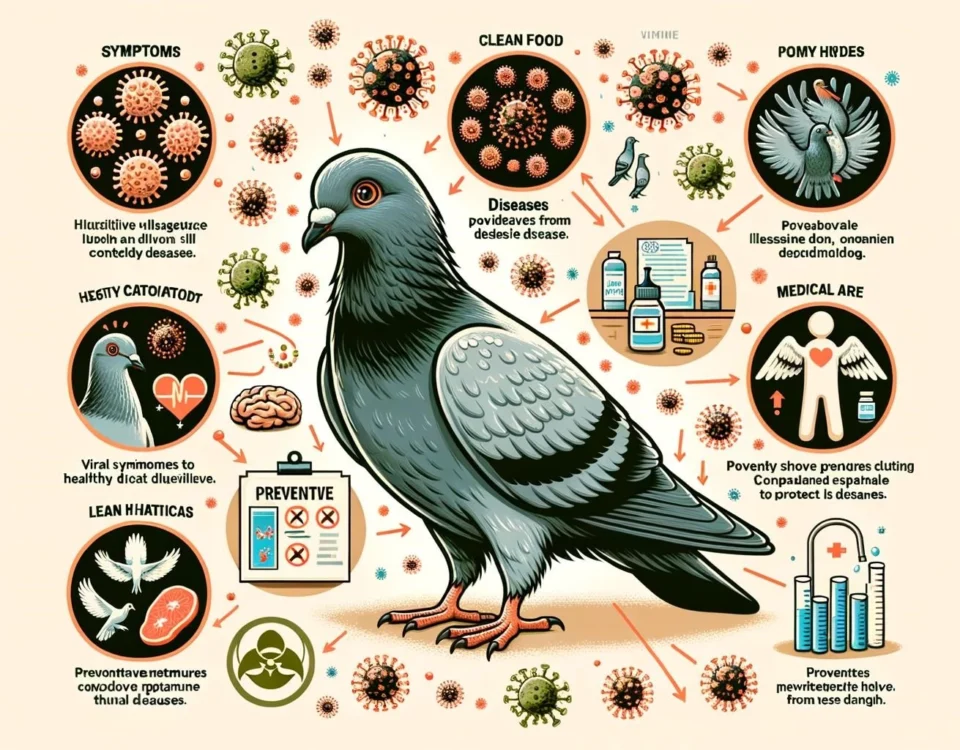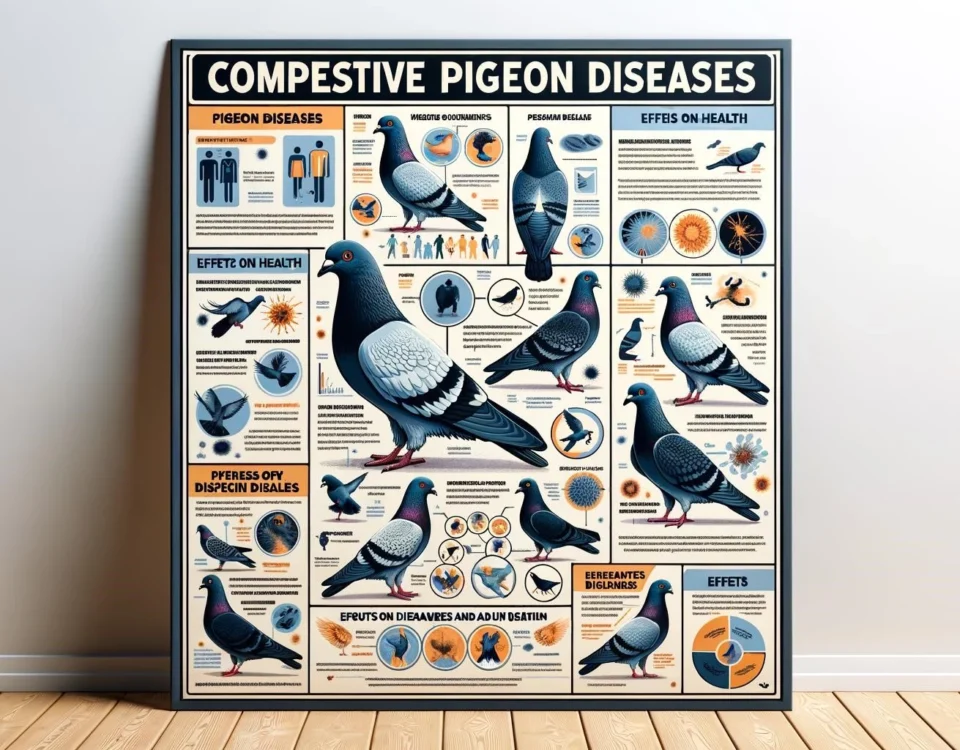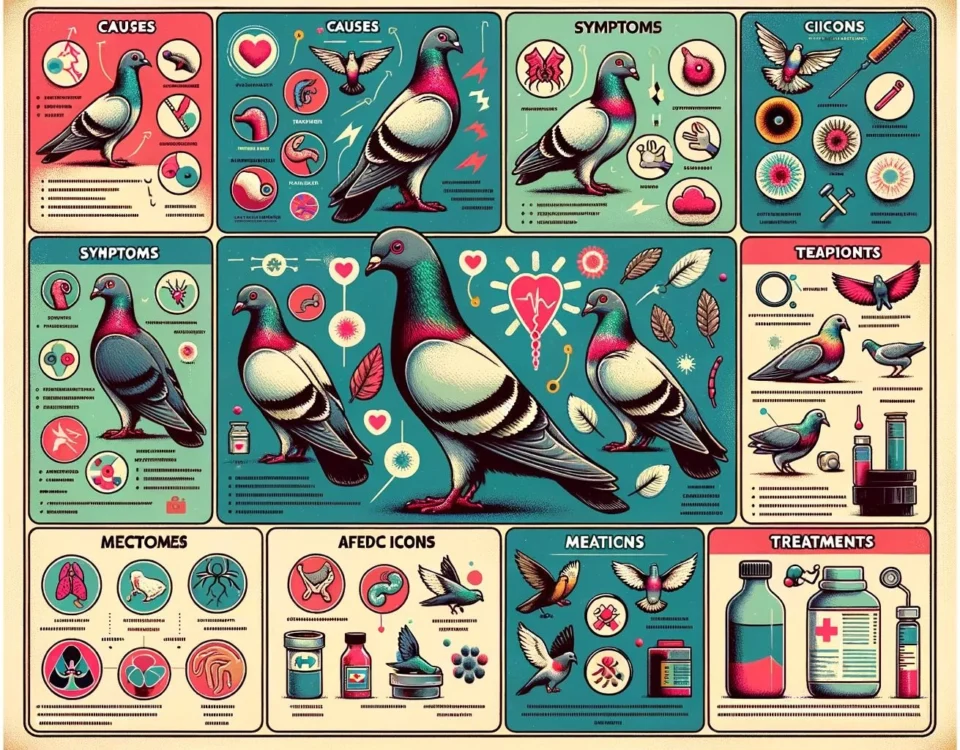Pigeons are widespread bird species commonly found in urban areas. While they may seem harmless, pigeons can carry various pathogens that have the potential to cause zoonotic diseases. Zoonotic diseases are infectious diseases that can be transmitted between animals and humans. In the case of pigeons, they can harbor bacteria, fungi, and parasites that can pose a risk to human health.
Key Takeaways
- Pigeons can carry zoonotic diseases, which are infectious diseases that can be transmitted from animals to humans.
- Some of the common zoonotic diseases associated with pigeons include Cryptococcosis, Histoplasmosis, Psittacosis, Salmonellosis, and Erysipelas.
- These diseases can be transmitted through direct contact with pigeon droppings, inhalation of contaminated dust, or consumption of contaminated food or water.
- Individuals with weakened immune systems, such as the elderly or those with underlying health conditions, may be more susceptible to these diseases.
- Proper hygiene practices, such as regular handwashing and avoiding direct contact with pigeon droppings, can help reduce the risk of infection.
Zoonotic Diseases Associated with Pigeons
Pigeons can carry and spread several zoonotic diseases, including:
1. Cryptococcosis
Cryptococcosis is a fungal infection caused by the fungus Cryptococcus neoformans, which is commonly found in pigeon droppings and soil. Humans can become infected by inhaling the spores of the fungus, especially in areas with high populations of pigeons. Symptoms of cryptococcosis in humans can range from mild respiratory issues to severe systemic infections, particularly in individuals with weakened immune systems.
2. Histoplasmosis
Histoplasmosis is a fungal infection caused by the fungus Histoplasma capsulatum, which is found in soil rich in bird droppings, including pigeon droppings. Inhalation of fungal spores can lead to respiratory symptoms, similar to pneumonia. In most cases, the infection resolves on its own, but individuals with compromised immune systems may develop severe or chronic histoplasmosis.
3. Psittacosis
Psittacosis, also known as parrot fever or ornithosis, is a bacterial infection caused by the bacterium Chlamydia psittaci. While parrots are the most commonly associated birds, pigeons can also carry the bacteria. Humans can become infected through inhalation of contaminated dust particles or direct contact with infected pigeons or their droppings. Symptoms of psittacosis in humans include fever, headache, cough, and pneumonia-like symptoms.
4. Salmonellosis
Salmonellosis is a bacterial infection caused by the Salmonella bacterium. Pigeons can carry various Salmonella strains, and humans can become infected through direct contact with contaminated bird droppings or by consuming contaminated food or water. Symptoms of salmonellosis in humans include diarrhea, fever, and abdominal cramps. Severe cases may require medical treatment.
5. Erysipelas
Erysipelas is a bacterial infection caused by the bacterium Erysipelothrix rhusiopathiae. Pigeons can carry this bacterium, and humans can become infected by direct contact with infected birds or their droppings. Erysipelas can manifest as a skin infection or, in rare cases, as a systemic infection with symptoms such as fever, joint pain, and endocarditis.
It is important to note that the risk of contracting these diseases from pigeons is relatively low for the general population. However, individuals with weakened immune systems, such as the elderly or those with underlying health conditions, may be more susceptible to severe infections.
Prevention and Safety Measures
To reduce the risk of contracting zoonotic diseases from pigeons, it is important to take certain preventive measures:
- Avoid direct contact with pigeon droppings, feathers, or nests.
- Wear appropriate protective clothing, such as gloves and masks, when cleaning areas contaminated with bird droppings.
- Wash hands thoroughly with soap and water after handling pigeons or coming into contact with areas where pigeons reside.
- Ensure proper sanitation and hygiene practices in areas where pigeons may congregate, such as public parks or buildings.
- Keep living spaces, particularly areas with pets or birds, clean and well-maintained.
- If you have a weakened immune system, consult with a healthcare professional for advice on preventive measures.
By following these preventive measures, the risk of contracting zoonotic diseases from pigeons can be minimized. However, if you develop any symptoms after potential exposure to pigeon-related environments, it is important to seek medical attention and inform your healthcare provider about your potential exposure to pigeon-borne diseases.









